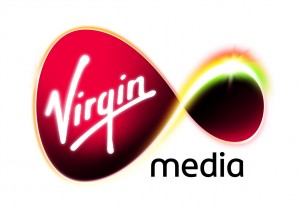
After more than 40 years of operation, DTVE is closing its doors and our website will no longer be updated daily. Thank you for all of your support.
Benefits from Virgin Media acquisition will be limited, say analysts
 While Liberty Global’s acquisition of Virgin Media will create scale and moderately improve the cable giant’s debt-to-EBITDA ratio, synergies created by the deal are likely to be limited, according to Moody’s.
While Liberty Global’s acquisition of Virgin Media will create scale and moderately improve the cable giant’s debt-to-EBITDA ratio, synergies created by the deal are likely to be limited, according to Moody’s.
The credit ratings agency also believes Liberty Global will retain the ability to do more acquisitions going forwards, but argues that consolidation of central and eastern Europe’s fragmented cable industry is more likely than major acquisitions in western Europe in the near term.
Moody’s analysis of the deal also points to a worsening of Virgin Media’s leverage and a downgrade by Moody’s of its credit rating to Ba3. Belgium’s Telenet could also face a downgrade as Liberty Global increases its debt and possibly takes cash from the operator in he form of dividends.
While the acquisition of Virgin Media will create the world’s largest cable operator with 25 million customers, Gunjan Dixit, assistant vice-president, analyst, Moody’s said the rationale for paying a premium of 24% for the operator “remains somewhat unclear”. The acquisition of an operator in a mature pay TV and broadband market goes against the grain of Liberty Global’s previous acquisition strategy and, while Virgin Media will boost Liberty’s free cash-flow, Dixit believes that the deal will produce opex and capex synergies of only about US$180 million (€135 million) a year.
Moody’s expects Liberty Global’s acquisition drive to continue. “LGI’s expected leverage after the Virgin Media acquisition will mean somewhat better, but still limited, headroom within its own leverage targets for material debt-funded acquisitions in the near term. Nevertheless, LGI has a good track record of managing the group’s leverage between 4.0-5.0x, despite continued M&A activity and shareholder returns in the form of share buybacks. The company has had good access to capital markets which has helped it to conduct sizeable deals in the recent past. We would expect it to structure any sizeable future M&A transactions while keeping leverage within its targets,” said Dixit. Given limited scope for deals in the immediate future, Moody’s points to Poland as one likely territory for near-term deals.
“Further consolidation in the fragmented markets of central and eastern Europe is more likely in
2013 than other large M&A transactions. The LGI-Virgin Media transaction is unlikely to set a precedent for similar kinds of deals, given that LGI is the only ‘consolidator’ in the European cable universe – no others have the financial scope to make such a sizeable acquisition,” said Dixit.
Moody’s believes the Virgin media acquisition could provide benefits in the form of scope for investment in new technology and flexibility in testing new ideas, as well as strengthening its bargaining power with regulators and governments.
However, the timing of the acquisition could have been motivated by financial considerations including the availability of debt in the market and Virgin Media’s ability to defer paying corporation tax for the foreseeable future as a result of losses incurred when it was investing in infrastructure over the last two decades, according to Moody’s.
Virgin Media is to be managed as a separate debt pool by Liberty Global and the company will issue one of the biggest high-yield bonds since the 2008 financial crisis to pay for the deal, leading to its likely downgrade by the credit ratings agency.
Liberty Global on the other hand will benefit from increased revenue and operating cash-flow as a result of the acquisition, leading to a modest improvement in its debt ratio. However, it is expected to draw cash from its operating subsidiaries – UPC Holding and Unitymedia-KBW – to pay for the deal, as well as increasing the debt ratio of Telenet, leading to these units’ credit ratings being put under review.
Looking to the wider European cable industry, Moody’s said its growth outlook remained unaffected, with revenue growth of 5-6% expected this year, with Germany providing high single-digit growth to compensate more modest growth in the UK and the Netherlands. Virgin Media is expected to turn in cable segment growth of 3-4%, possibly with higher growth in the mobile and business-to-business segments.


